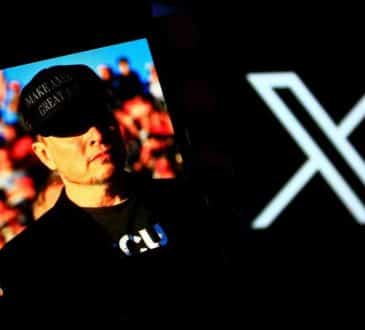LEADING WITHOUT FRONTIERS: How to fearlessly navigate invisible horizons?

Creativity is the most distinguishable quality for every leader in every domain. Creative leaders display distinctly different behaviors, values, and characteristics from traditional management, and they get exponential results, inspire creativity in others, build productive teams, and drive successful businesses. They embrace originality and make unique connections between disparate universes past and present to light the way into the future by transcending the ordinary and routine.
Many innovators are classic outsiders, mavericks, and misfits who disrupted, invented and changed the faces of their industries forever. Andrew Carnegie, Walt Disney, Henry Ford, Steve Jobs, Elon Musk, Nikola Tesla, and the Wright Brothers rose from obscurity to radically transform an industry and how people lived.
As I say in my book, Creativity Without Frontiers, “Creative leaders have confidence in their ideas and never give up on bringing them to fruition. It means leading without frontiers by seeing around the corners and fearlessly navigating into the future.”
Yet while many organizations claim that they value creative leadership, most of them pay lip service to the idea to rev up the past by promoting leaders who do not espouse creative leadership and instead are perceived as safer, risk-averse, and more likely to maintain the status quo, which is diametrically opposed to the necessary leadership needed to move the world forward.
Why? In general, people can be shiftless and self-gratifying, and as a result, the future will leave them behind. This is because they can self-destruct through excess and become victims of their own success by cultivating destructive habits and complacency. Falling asleep at the wheel, getting permanently drunk on your own Kool-Aid, surrounding yourself with b and c players, getting lazy and bloated, where you can’t see the wood for the trees and all the beast of prey, and making ego-based decisions.
Xerox missed the opportunity because its self-inflicted fixed mindset curtailed its ability to grow and evolve due to its inability to commercialize its products. Kodak’s complacency from its dominance of the traditional photography market led to it missing the shift to online photo sharing. BlackBerry sank from owning over half of the American and a fifth of the global smartphone market to zero. Blockbuster monopolized the video rental market until Netflix disrupted it by adapting to customer needs and technological changes.
It’s actually a logical progression, as the purpose of organizational development is to provide leading-edge thinking, practice, and programs. You cannot curate a culture of creativity by subscribing to it or buying it from a shelf because it is a social system about values, skills, craftsmanship, and a way of doing that needs to be embraced and practiced throughout an organization to nurture people to create without fear by continuously managing innovation that powers the products they design, make, and sell, and the businesses they run.
Blending the art and science of the creative process: Dream, Make and Do. The process is iterative and constant, and customizable per craft, situation, and opportunity. It is about discovering and developing insight, involving divergent and convergent thinking to analyze a problem, perceiving patterns that are not obvious, generating and evaluating ideas that can become concepts, experimenting, prototyping, constructing, and making a plan of action. Applying techniques that drive evolution, synthesis, re-application, reinvention, reimagination, disruption, revolution, and changing direction.
To help become an influential creative leader, there are five principles that define what you must know and practice, and that holistically address leadership at the individual, team, and organizational levels:
- Imagination
Create, design, and make new things with childlike imagination and discovery by seeing the unseen and navigating the journey to get there by evoking magic and delight, dreaming up what doesn’t exist, and turning your imagination into art. - Innovation
Dream up and bring novel ideas to life in a practical form. This can be infused into products, services, or experiences, creating commercial value or positive societal benefits. Revel in finding the future by tinkering with and experimenting with technologies and cross-pollinating across multiple domains in the creative arts and beyond to make art that adds value. - Aesthetic
Blend art and science with excellence in craftsmanship by anticipating future trends inspired by culture and aesthetics connected to emotions and imagination. Be minimal in the spirit of less is more by concentrating on the essentials only. Let your craftsmanship be laser-focused to the last detail because care and accuracy show mindfulness and respect for your audience. - Entrepreneurialism
Fearlessly lead toward invisible horizons by applying a do-it-yourself sensibility to finding the future by being adaptive, persistent, and resilient in bringing new solutions to market. Be independent-minded and self-sufficient from start to finish, always finding the alternative by rejecting the banal and status quo in your own voice and style. - Manifestation
Light the way into the future by taking “what is not” and making it “what can be” by bringing meaning to the humdrum and breaking through conventional values, tastes, and perceptions. Connect emotionally with people across every culture and walk of life worldwide, making it relatable and understandable by providing purpose and meaning.
Now is the time for you to define and bring to life your own authentic manifesto. The defining question is a stalemate: should you be acceptable to others or to yourself?
Written by Roy Sharples.
Bring the best of the CEOWORLD magazine's global journalism to audiences in the United States and around the world. - Add CEOWORLD magazine to your Google News feed.
Follow CEOWORLD magazine headlines on: Google News, LinkedIn, Twitter, and Facebook.
Copyright 2025 The CEOWORLD magazine. All rights reserved. This material (and any extract from it) must not be copied, redistributed or placed on any website, without CEOWORLD magazine' prior written consent. For media queries, please contact: info@ceoworld.biz











